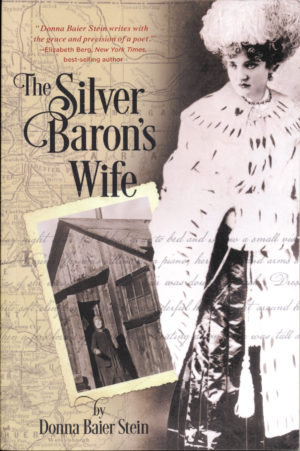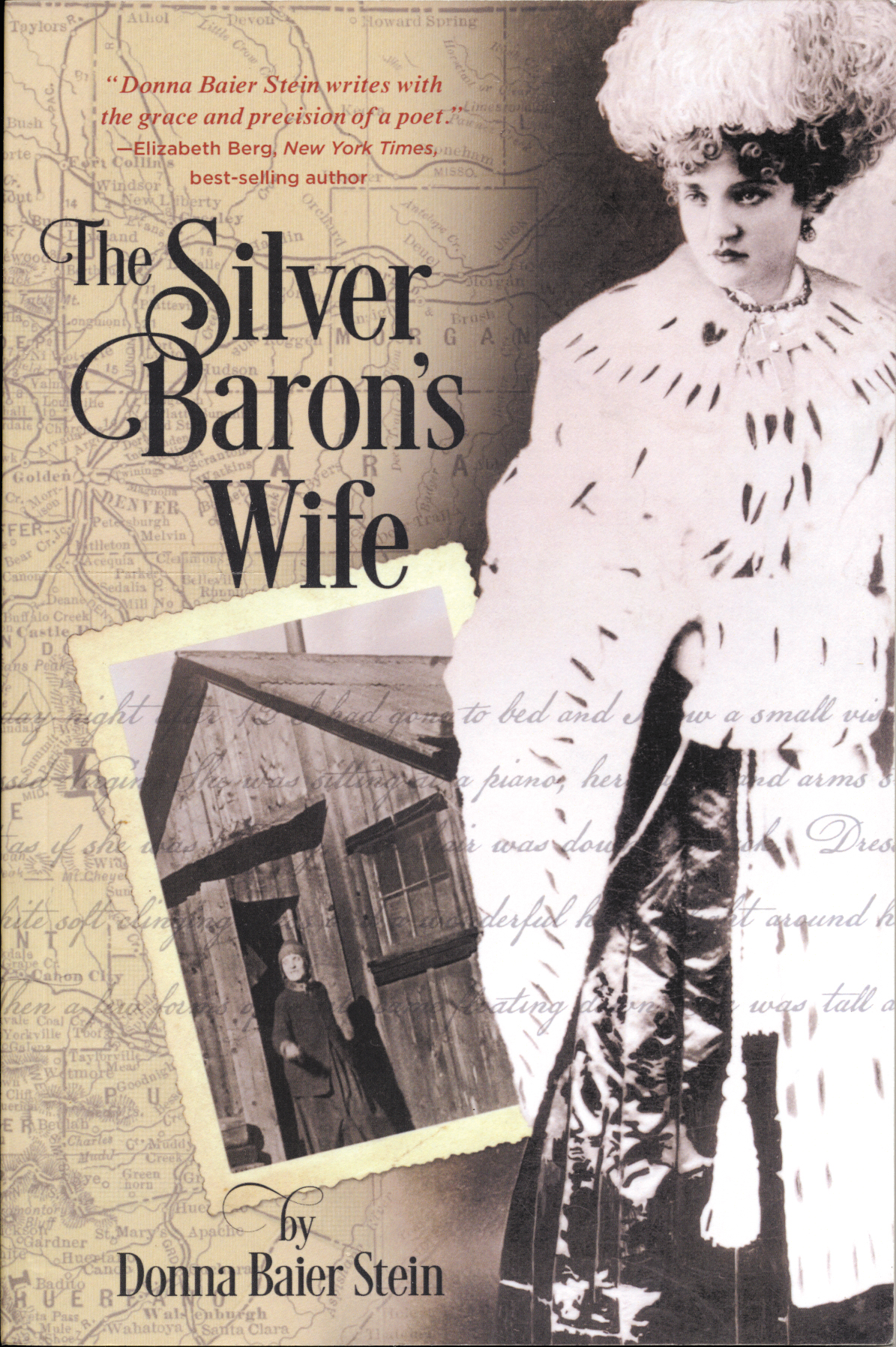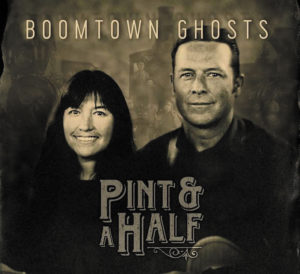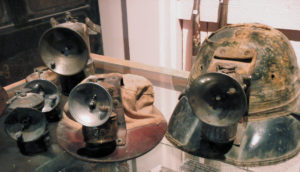 By Donna Baier Stein
By Donna Baier Stein
Serving House Books
ISBN 978-0-997010-6-5
Reviewed by Forrest Whitman
Lizzy “Baby Doe” Tabor is a tough subject for any novelist to pick, and Donna Stein has done a good job here. There are hundreds of books and articles written about this famous figure from Colorado history. There are also plays and one full length opera. The interpretations of her life and writings are many indeed. What can another historical novel add?
The basic Colorado 19th century history is well covered. Stein writes the scandal as Lizzy marries the richest man in Colorado, Horace Tabor. The author also does a good job with the politics of the era and covers some of the history that sends us to visit Leadville today. Baby Doe Tabor is the romantic lead in a tale we never tire of hearing. What’s new is that the writer relies heavily on Baby Doe’s own writing.
[InContentAdTwo] Stein warns us that this is a novel and not history, but that’s a tricky path for her to take. Obviously Stein has to stick fairly close to the history since so many readers will know it already. What’s unusual is that she tries to get us into Baby Doe’s mind by employing her writings. These are mostly dreams and letters, and Stein intersperses them well.
Baby Doe wrote a lot, especially as she found herself stuck in Central City as a young bride. The gold and silver boom was on in Colorado, and her husband, Harvey, was put in charge of the Fourth of July Mine. Harvey quickly turns out to be a drunk and a no-good fellow. A woman alone on the frontier had few options.
Baby Doe did go down into that mine and worked to keep it going. (She actually did more than that, arguing for a loan at the First National Bank of Central City.)Her divorce from Harvey is well documented, though the notion that she surprised him in a house of prostitution is unlikely. Again, we probably shouldn’t let history interfere with the novel, but it’s hard not do so about things like that.
The rest is a fairy tale come true. She meets Horace. He divorces his wife and marries her. She falls in love with Leadville and mining. She goes with Tabor to Washington for his one-month term as a U.S. Senator. Chester Arthur, the president, does come to their wedding party. It’s a Donald Trump moment.
The last act is poignant. She dies alone and starving, but still hanging on to the Matchless Mine. In fact, she died of heart disease and was not starving, but I quibble. Stein’s passages about the end are as good as the opera, and hankies are advised.
Unfortunately, I found it hard to ignore the old problem of “the biographical fallacy.” I find it in lots of historical fiction. The writings of Baby Doe are interpreted on the basis of her known history. That’s just the old historical fallacy.
But let’s put quibbles aside. The reader can enjoy this as a novel and not get too tied up with arguing history. Enjoy a well-written and entertaining novel from a very good writer.




